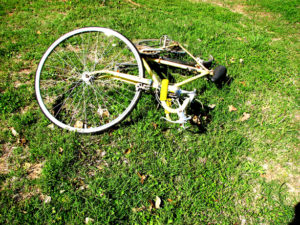 I say that often. It’s part of my personal philosophy, and it’s part of my business philosophy. Let me explain.
I say that often. It’s part of my personal philosophy, and it’s part of my business philosophy. Let me explain.
People around the world (you included) buy learning materials, books, audio programs, and webinars and attend lectures and workshops every day. Those learning options exist whether you want to learn about leadership, leopards or being a lifeguard.
Companies and organizations everywhere organize and fill workshops and classes continually, because they want to invest in their employees’ and team members’ education and learning. All of those activities make sense. We want to be able to learn or do more, and our life experience says that a classroom and reading are the ways to learn something new.
Unfortunately, a large percentage of those investments of time, money and effort in courses, books and programs are wasted. Books don’t get opened, webinars aren’t attended, workshops are forgotten and much more. It isn’t really the fault of the author, instructional designer or trainer. While there are things that people can do to improve the results gained from their products, in the end it isn’t their responsibility.
It is the learner’s responsibility.
As long as we carry an “event” mindset, we won’t get the results we want. Because learning is a process, but all the programs, classes and books are just events, and we don’t learn in a lasting way from an event.
In order for us to get value from the books, audio, classes, courses and workshops, we must take action. We must try what we learned, see what happened, tweak it, and try again. In other words, we must do what has always worked for us. Think about it: You didn’t learn how to ride a bicycle until you put your butt in the seat and a foot on the peddle.
At first, when you got on the bike, you made mistakes and fell down (and scraped your knee and depending on who was watching wounded your pride). Yet you got back up, tried again and learned how to ride. To learn the things you want to learn now, you must get a little dirty, expose yourself (and your image), and try. Once you have those lessons, you can improve and adjust until you get the results you desire. Here then is the magic pill that you have been looking for ever since you grew up and forgot about the lesson of the bicycle: Make your learning a process.
Consider books, courses, audio programs all a part of your grander learning process. Commit to finding ways to practice what you are learning, and to finding ways to receive feedback (from yourself and/or others) about your progress. When you place all those wonderful learning tools in perspective, they can have a tremendous positive impact for you and your results, but only when they are seen as a piece of your personal learning puzzle, rather than the moment in time where things will change for you.
This information is important for you as an individual, but it is important for you to remember as a leader as well. If you want to help develop those you lead, you must help them create a learning process, rather than simply signing them up for the next corporate course. Leaders can help create a process (holding them accountable, asking for their learning goals, giving them feedback, as examples), or invest in learning opportunities that include a process.
We rarely learn anything, beyond a fact or morsel of knowledge in an event or moment in time. Real useful learning comes from a process of doing, trying, experiencing and applying. Despite this fact, we continue to seek the “event” that will transform our performance. Consider the event the spark for, rather than the completion of, the learning.
Photo Credit: http://www.freeimages.com/photo/bicycle-1418818

0 comments